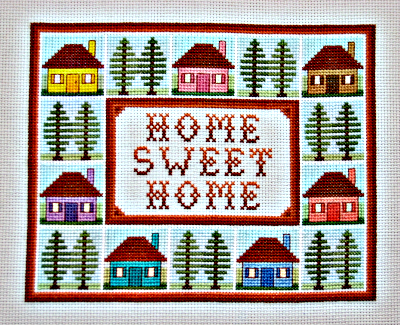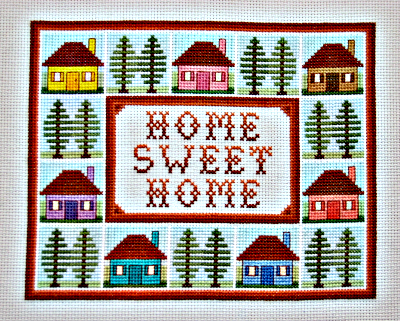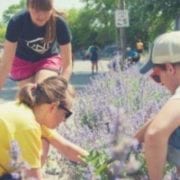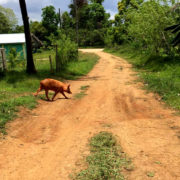JV Reflects: On Leaving, Returning and Reflecting on “Home”
 BY SARAH ESTRADA | January 13, 2014
BY SARAH ESTRADA | January 13, 2014
There is always a fear in letting go or leaving something behind. As I repack my belongings, and make my way back to my JVC community from the opposite coast upon which I grew up, I found myself on the cusp of the weight limit for my checked luggage. It seems I always return from I have come with more than I arrived. This goes for more than just material things.
Leaving my JVC community for Christmas revealed to me the areas of my life where I have already been “ruined.” From expecting snow to fall to seeing a Dunkin on nearly every corner, upon arriving to my parents’ house in California and sharing with them some of my experiences thus far, I began to refer to my JVC community and Syracuse as my home.
My entire life, I have struggled to find a place where I belonged and felt acceptance; a place that reflected the desires within me that bring me life. After immersion trips and studying abroad during my undergraduate experience, I have learned that “home” reflects and validates the aspects of my life I love and am called to love. In Spain, I found home with the North African immigrants who travelled to Bilbao to have a better life. In Brazil, I felt community with the church groups in Olinda and Pernambuco who find God in those with whom their share their lives. And in the Philippines, I found love in the eyes of the poor.
Transitioning from my JVC community to my “home” in California made me realize that regardless of how much I “pack” or bring with me, wherever I go, there is always a part of who I have become that gets left behind.
Although I do fear leaving things behind, that which is left is never forgotten. I hold this sentiment close to my heart while I work at my JVC placement. At Northside Catholic Youth Organization in Syracuse, I co-teach a class for newly arrived children from different countries to help transition them into the Syracuse Public School System. Because many of the children do not receive school placements until two to three months after arriving to the United States, this program provides children the ability to learn how American schools function and what to expect upon receiving their school placement.
When I teach the class, I can sometimes forget that every child who takes a seat carries unique experiences with her. My first students this year were a family of four girls ranging from age seven to 15. They consistently attended the month-long course, participated in each session’s activities, and completed assignments outside of class. In my eyes, watching their progress throughout the month demonstrated the effectiveness of the program and that I was doing something “right”.
One day, one of my co-teachers asked the oldest sibling which country she came from. Dina responded that her family had come from Nepal. My co-teacher asked Dina if her family was ethnically Bhutanese, in which Dina responded affirmatively. As Dina and the teacher engaged in a conversation about the relationship between Nepal and Bhutan, I heard, for the first time, about the history of Nepal and Bhutan and how although a refugee may state that she derives from a certain country, his or her ethic identity may be different.
Listening to Dina and my co-teacher’s conversation humanized the struggle of refugee youth. I realized that a refugee’s home country differs from one’s refugee camp in which he or she departed from, which may or may not also differs from his or her ethnic identity. I also discovered that asking and understanding where someone comes possesses complexities that cannot be solved by reading a client’s documentation file.
As I return to my JVC community in Syracuse, I continue to reflect on where my home is. I have learned that, more than a physical place, a home reflects and fosters my identity. It frames my mentality about the world around me.
As the new year begins and I continue in my JVC experience, I hope to create a space for the refugee youth with whom I work to understand that identifying home is an ever changing process. Although I am far from family and friends in California, working with and for these children teaches me that finding one’s home is a journey which requires vulnerability and an openness to have one’s reality broken open and rebuilt by love.
Sarah Estrada is from San Jose, California. She is a graduate of the University of San Francisco with a BA in International Studies and a minor in Philippine Studies. Sarah enjoys watching TV, especially the news, learning new styles of dance, and learning new things. She loves doing chores and loves to travel, even though she is a homebody at heart. As a JV, she serves in Syracuse, NY as a Refugee Youth Program Coordinator at Catholic Charities of Onondaga/Northside CYO.











Leave a Reply
Want to join the discussion?Feel free to contribute!